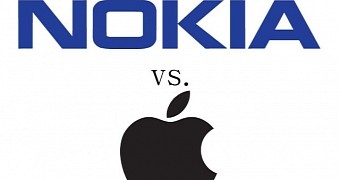In December last year, a few days before the winter holidays, Nokia filed a number of lawsuits against Apple for allegedly infringing on 32 technology patents. Nokia filed complaints against the iPhone maker in multiple European countries, as well as in the U.S. District Court for the Eastern District of Texas.
The U.S. International Trade Commission said that it would investigate a complaint by Nokia Technologies alleging that Apple Inc. imported smartphones, tablets and other devices that infringe upon its patents, according to a report by Reuters.
The Trade Commission has yet to make a decision in the case filed by Nokia Corp, but did mention that the company is seeking a cease and desist order and limited exclusion order against Apple in the case.
Apple pulled Nokia products from stores
The results of this investigation won’t be announced very soon, considering that the Trade Commission will set a target date for completing the investigation 45 days after actually launching it. The USITC will also schedule and hold an evidentiary hearing, during which they will determine if there’s enough evidence to require a trial.
In 2011, Nokia and Apple signed an agreement that covered some patents from Nokia’s portfolio, but more recently, Apple declined to pay for using technologies that were previously patented by Nokia. Thus, Apple is accused of using more patents that it initially agreed to pay for. As a response, Apple pulled Nokia products from its stores, specifically Withings devices.
Nokia purchased Withings last year and the company offers various premium devices like thermometers and scales for connecting to iPhones. Apps created by Withings are still available in the App Store, and there’s a low chance that the iPhone maker will take them down.
These patent wars usually drag on for months or even years to an end. It will be interesting to see if Nokia will actually be granted the cease and desist order, and what Apple’s response will be.

 14 DAY TRIAL //
14 DAY TRIAL //